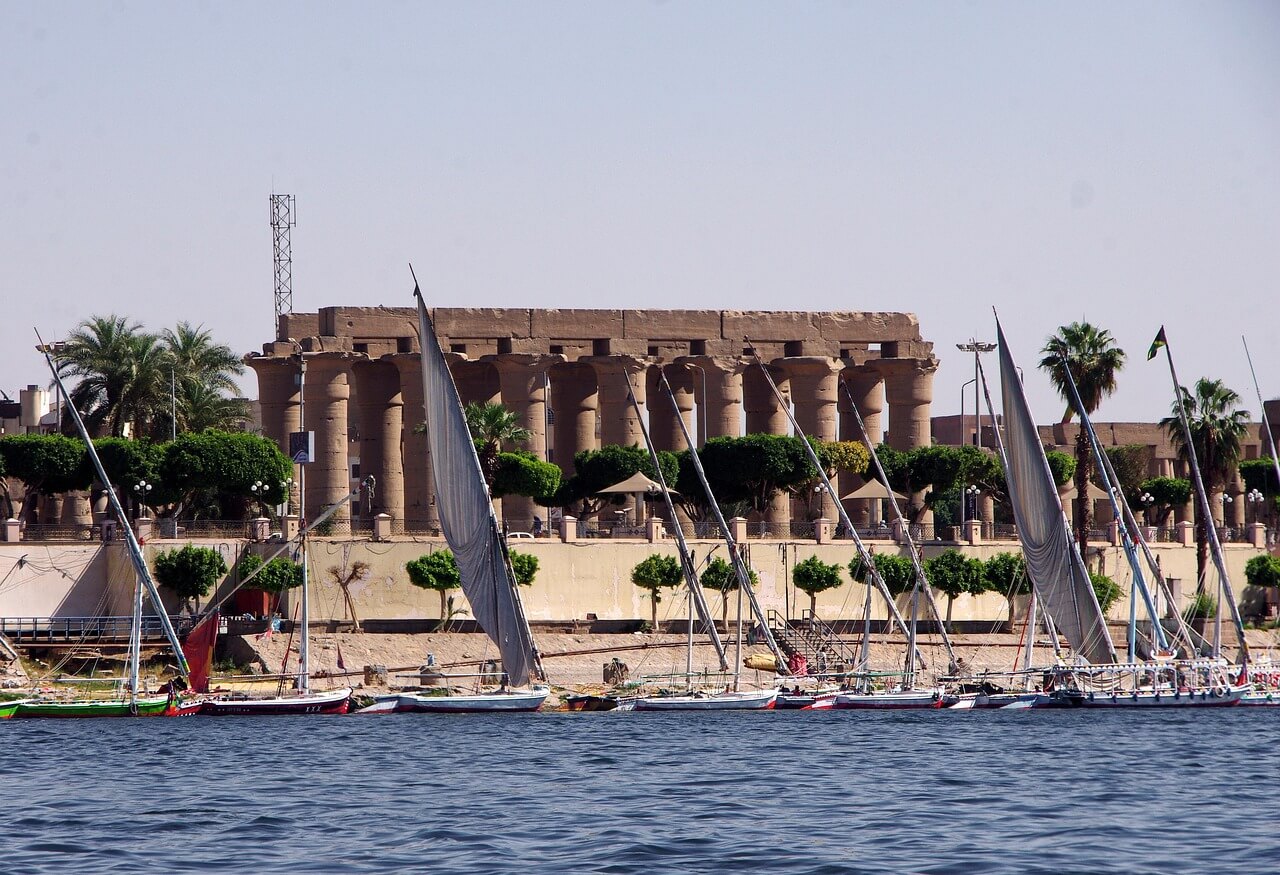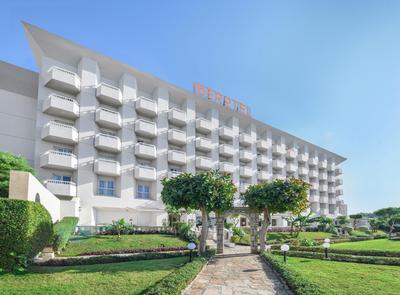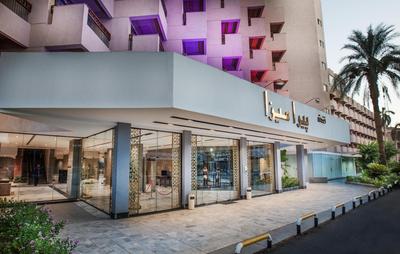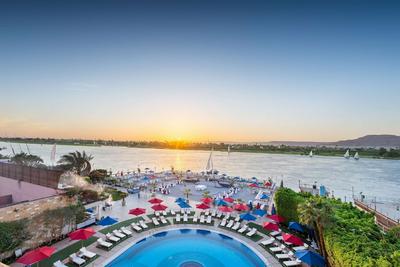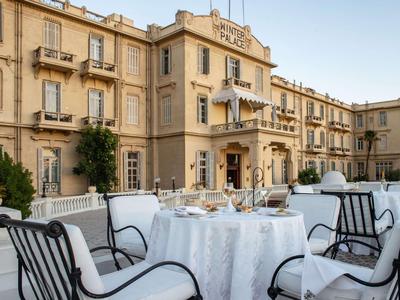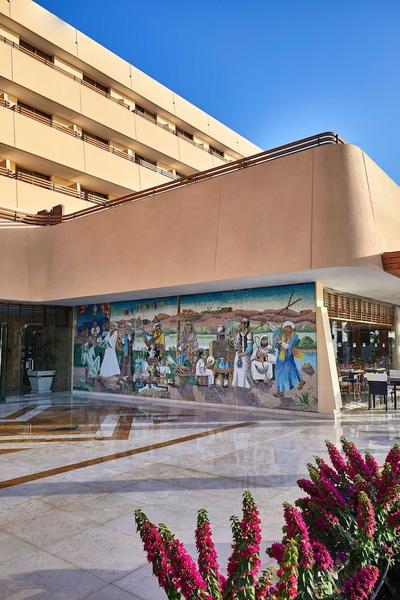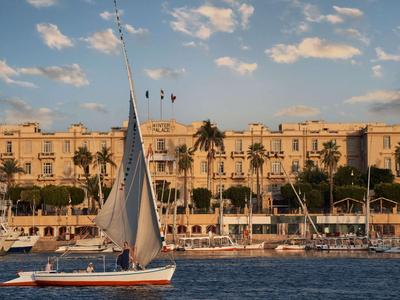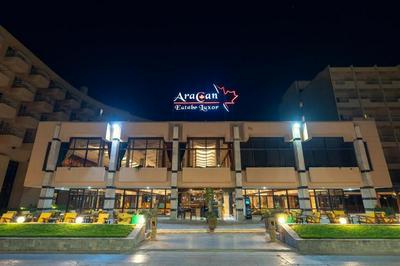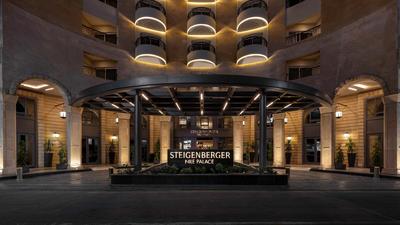When to visit Luxor?
Luxor, known as the world’s greatest open-air museum, offers a warm climate year-round, but the best times to visit are during the cooler months from October to April. This is when temperatures are most comfortable, ranging from 15°C to 25°C (59°F to 77°F), ideal for exploring its rich history and breathtaking monuments.
During summer (June to August), Luxor can become unbearably hot, with temperatures often soaring above 40°C (104°F). While this might deter some travelers, if you’re brave enough to visit during this season, you’ll encounter fewer crowds and can often find great deals on accommodation.
In spring (March to May), the weather starts to get warmer, and the days are pleasantly sunny. It’s a great time for outdoor activities and visiting temples without enduring the sweltering heat of summer. Autumn (September to November) is similar, offering warm days and cooler nights, making it another pleasant time to experience Luxor.
Overall, to truly enjoy everything Luxor has to offer, aim for the cooler months, when the weather complements the stunning heritage sites and cultural experiences available in this unique Egyptian city.
How to get to Luxor?
Reaching Luxor is relatively straightforward due to its well-connected transport options. The primary gateway is Luxor International Airport, with flights from major cities across Egypt and certain international destinations. The airport is about 6 km from the city center, which takes roughly 15 minutes by taxi.
If you’re traveling by train, Luxor has a railway station with comfortable trains connecting to Cairo and Aswan, making it a scenic route worth considering. The train ride from Cairo to Luxor covers around 650 km, taking approximately 10 to 12 hours.
If you’re on a budget, consider the bus services available, with multiple companies providing routes from various Egyptian cities, such as Cairo and Aswan. Buses are generally affordable, and the journey can take anywhere from 10 to 12 hours depending on your starting point.
Lastly, if you desire more freedom to explore, renting a car for a road trip is an option. The drive from Cairo to Luxor takes about 9 hours, and it allows you to stop at attractions along the way, like the Valley of the Kings.
Tourist activities in Luxor
Luxor is brimming with activities that cater to all sorts of travelers. Begin your daytime adventures with a visit to the magnificent Karnak Temple, one of the largest ancient religious sites in the world. Don’t miss the Luxor Temple, which is particularly stunning at sunset.
For history enthusiasts, the Valley of the Kings is an absolute must-visit, where you can explore the tombs of ancient pharaohs. Nearby is the Valley of the Queens and the Temple of Hatshepsut, showcasing incredible architecture and history.
When it comes to outdoor experiences, a hot air balloon ride at sunrise offers breathtaking views of the Nile and the surrounding valleys. Alternatively, take a leisurely felucca ride on the Nile, soaking in the tranquil atmosphere and scenic views.
As for nightlife, Luxor has quaint cafes and a few lively spots near the Nile, allowing for a relaxed evening and wonderful views. You can also find local markets or 'souks' to shop for authentic Egyptian souvenirs and crafts.
Events and festivals
Luxor plays host to a variety of vibrant events and festivals throughout the year, making it a lively destination for visitors. One of the most notable is the Luxor African Film Festival, usually held in March, showcasing African cinema and culture, attracting filmmakers and audiences from across the continent.
Another key event is the Festival of the Valley, celebrated in late October or early November, where local communities partake in traditional music, dance, and rituals honoring the ancient gods. Various ceremonies occur in temples and around the city.
For those interested in music, the Karnak Temple hosts various concerts during the peak tourist season, providing a magical ambiance combined with world-class performances.
Lastly, during Ramadan, the atmosphere in Luxor transforms with night markets and cultural activities happening across the city, offering travelers unique insights into local traditions and festivities.
Family and kids activities
When traveling with kids, Luxor offers several engaging activities the whole family can enjoy. The Luxor Museum is an excellent place for children, with fascinating exhibits that engage visitors of all ages, featuring mummies, artifacts, and interactive displays.
For outdoor fun, the West Bank is home to tranquil gardens where kids can run around safely while enjoying views of ancient temples from a distance. The family can also enjoy a cruise on the Nile; kids love the experience of being on a boat, and some cruises offer leisurely meals and evening entertainment.
Biking is another wonderful way for families to explore the landscapes surrounding Luxor. Rentals are available throughout the city. Additionally, visiting local markets can be fun—they can choose traditional snacks and unique souvenirs.
Finally, taking a day trip to the nearby village of Al-Qurna offers a glimpse of local life, where kids can see farmers at work and animals in the fields, connecting them to the region's rich cultural heritage.
What to see in Luxor?
Luxor is a treasure trove of historical wonders, and there’s no shortage of breathtaking sites to explore.
- Karnak Temple: A vast complex with impressive hypostyle halls and temples dedicated to Amun-Ra.
- Luxor Temple: Stunning temple built in honor of the pharaohs, beautifully illuminated at night.
- Valley of the Kings: The burial site of countless pharaohs, featuring incredible tombs adorned with ancient hieroglyphs.
- Valley of the Queens: Home to the tombs of royal women, including Queen Nefertari’s magnificent tomb.
- Temple of Hatshepsut: A striking mortuary temple built for Egypt's first female pharaoh, showcasing remarkable architecture.
- Colossi of Memnon: Two massive stone statues standing as guardians of the ancient city.
- Luxor Museum: Offers an enriching experience with its collection of antiquities from the Theban temples.
- Nile River: A sunset cruise on the Nile is a beautiful way to take in your surroundings.
Accommodation in Luxor
Luxor boasts a variety of accommodation options ranging from luxurious hotels to budget-friendly hostels. The most well-known area for tourists is along the Corniche, where you’ll find upscale hotels like the Hilton Luxor Resort & Spa, offering stunning Nile views and excellent amenities.
If you prefer boutique stays, opt for smaller hotels or guesthouses located near the city center, providing a cozy atmosphere and a more local experience. These places often feature traditional decor and are close to main attractions.
For budget travelers, hostels can be found in and around the city and are ideal for those looking to meet fellow travelers. Prices can vary significantly, so it’s advisable to book in advance during peak seasons.
Families might consider apartment rentals, giving them more space and the convenience of cooking their own meals. Overall, no matter your preference or budget, Luxor offers comfortable accommodations for everyone.
Important numbers and information
- Emergency Numbers: Police: 122, Ambulance: 123, Fire: 180.
- Tourist Information Centers: Located near Luxor Temple and within the Luxor Museum.
- Main Hospitals: Luxor International Hospital, El Mahrousa Hospital.
- Airport Contacts: Luxor International Airport: +20 95 237 1861.
- Public Transport Info: Local buses run frequently; you can also find taxi services around the city.
- Taxi Apps: Uber operates in larger cities, while local taxis are easily hailed on the streets.
- Currency: Egyptian Pound (EGP); credit cards are widely accepted in most tourist areas.
- Payment Methods: Cash is king in most local markets and eateries, so keep some on hand.
Where to eat?
Luxor offers a rich culinary experience that features traditional Egyptian flavors. Local cuisine consists of hearty dishes like koshari, molokhia, and a variety of grilled meats. The eateries around the main tourist areas often serve these delicious meals, along with refreshing drinks like sugarcane juice or hibiscus tea.
The best areas for dining include the streets around Luxor Temple, where you’ll find a blend of casual and more upscale restaurants showcasing Nile views. Al-Sahaby Lane is popular for its diverse selection of eateries.
If you're looking for local street food, try falafel or tamiyya (Egyptian falafel) from vendors, which can be a tasty treat while exploring the city. Average meal prices can range from 20 EGP for street food to 150 EGP at nicer restaurants.
For something special, consider dining on a felucca boat, offering a unique dining experience with a stunning sunset view over the Nile.
Nightlife – where to go out?
Luxor’s nightlife might not be as frenetic as in larger cities, but it offers charming options for those looking to unwind after a day of exploring. Riverside cafes along the Corniche provide the perfect backdrop for a leisurely evening. Here, you can sip on mint tea while enjoying views of the Nile.
If you’re eager for a lively atmosphere, head over to the top-rated pubs like the 'Sky Lounge' at the Steigenberger Hotel, where you can relax with cocktails under the stars. For a more local experience, 'Hanan Café' offers traditional music and a laid-back vibe.
For nightclubs, 'The Lounge' at the Hilton frequents a younger crowd, often featuring themed nights and live DJ sets. Additionally, there are various entertainment districts along the Nile where travelers can find dance clubs and bars.
Overall, while Luxor's nightlife is quieter than major metropolitan areas, it's filled with unique experiences that let you enjoy the local culture and evening air.
Transport and taxis
Getting around Luxor is fairly straightforward, thanks to its accessible transport options. The city has a network of local buses that run frequently, making them a cheap way to navigate while enjoying views of the countryside. Ticket prices are quite low, often just a few EGP, ensuring budget travelers can easily get around.
Additionally, taxis are widely available and affordable. It's recommended to agree on a fare before starting your journey, as not all taxis use meters. Ride-hailing apps like Uber are also functioning in larger areas but may have limited availability.
For those wanting to explore at their leisure, you might consider renting a bicycle or simply walking around the main tourist areas, which is an excellent way to soak up the atmosphere and discover hidden gems.
- Local buses: Inexpensive and frequent.
- Taxi services: Available around the city; negotiate fare beforehand.
- Bicycle rentals: Popular for sightseeing.
- Walking: A pleasant way to explore the city center.
Parking and public garages
Parking in Luxor can be a bit challenging, especially in the more congested areas near the main attractions. While some hotels offer dedicated parking spaces, public street parking can be limited. Be cautious about parking regulations, as enforcement varies and you might incur fines if not careful.
There are a few public garages scattered throughout the city, particularly near shopping areas and larger hotels. Prices vary, but typically, it ranges from 10 EGP to 30 EGP for a day’s parking. On busy days or holidays, it’s wise to arrive early to secure a spot close to your destination.
For ease of travel, consider relying on taxis or public transport, as driving may be more hassle than it’s worth, given the maze-like streets and local driving customs in this historical city. Overall, having a car can provide freedom, but be prepared for potential parking challenges.
Surroundings of Luxor
The surroundings of Luxor are equally captivating, offering plenty of day trip opportunities. One must-visit location is the Temple of Karnak, not far from the city center, easily accessible for a morning exploration.
For those seeking nature, the picturesque West Bank boasts the stunning landscapes of the Valley of the Kings and the Valley of the Queens, which also offer other hidden gems like the Tombs of the Nobles and Deir el-Medina.
Another fascinating site is the town of Dendera, east of Luxor, known for its exceptionally preserved Temple of Hathor. This site provides a glimpse into ancient practices and is a stunning example of Egyptian architecture.
Consider a day trip to Aswan, just a few hours away, which features historical attractions like Philae Temple and the Aswan High Dam. This allows for an immersive experience of Egypt’s ancient history while enjoying the scenic beauty of the Nile.
Whichever direction you choose, the surroundings of Luxor offer rich history and stunning landscapes, perfect for exploration beyond the city’s boundaries.
